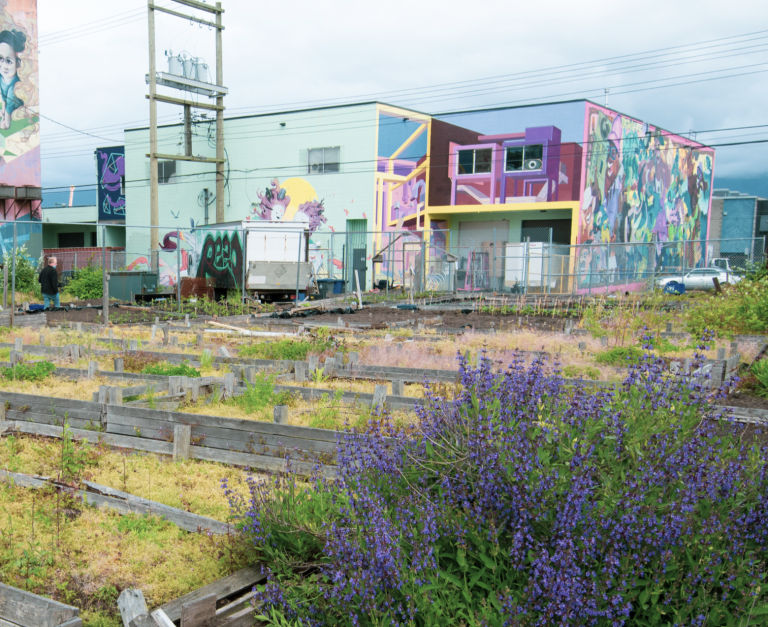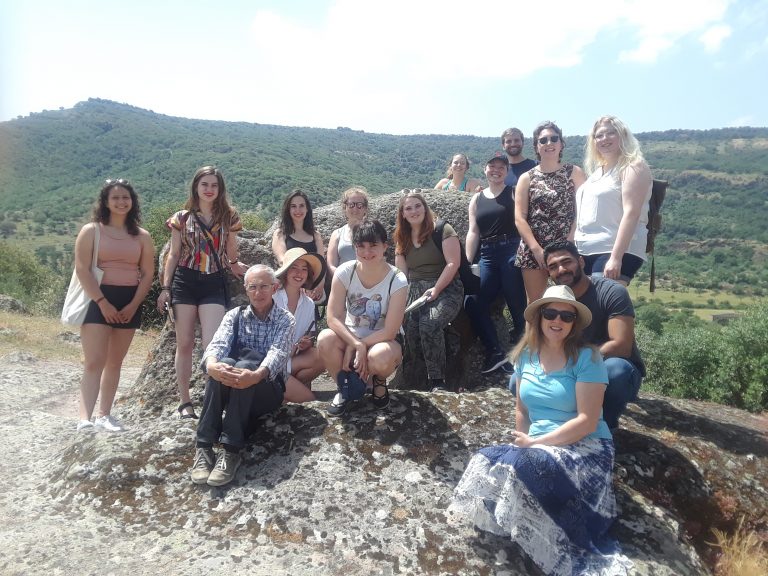Enhance your degree while gaining hands-on experience through field schools in urban ethnography, archaeology, or one of our global field school opportunities.
Urban Ethnographic Field School

Vancouver is a city defined by its expanding and deepening connections with peoples and cultures from around the world. The dynamic growth of immigrant populations reflects the wealth of knowledge and experiences contained in the everyday life of the city.
To give students an opportunity to learn from Vancouver’s diverse immigrant communities, the UBC Departments of Anthropology and Sociology have launched the first Urban Ethnographic Field School (UEFS) .
As a fieldwork-based course, UEFS trains students how to conduct in-depth, community-based research on the social, political, cultural, and economic lives of immigrants.
By immersing themselves in qualitative research, students gain valuable experience linking hands-on research in the classroom to theoretical paradigms related to the study of migration, transnationalism, global diasporas, and multicultural communities.
Students learn how to carry out participant observation, interviews, and focus groups while learning how to create statistical portraits of immigrant communities and map key community resources such as sites of worship, cultural centers, immigrant services, or language specific delis and video stores.
Archaeological Field School
Summer archaeology field school opportunities are typically offered as ARCL 306 (Summer Field Training in Archaeology; 6 credits), with the most recent field school held in Togiak, Alaska, and others also held at Musqueam and Sts’ailes: Sts’ailes Archaeology Field School.
Since 2007, the xʷməθkʷəy̓əm (Musqueam) Indian Band and UBC Anthropology have jointly created opportunities for field instruction and research that is conducted with the approval of Musqueam Chief and Council.
Musqueam/UBC Steering Committee:
- Leona Sparrow (Musqueam Indian Band)
- Aviva Rathbone (Musqueam)
- Sue Rowley (UBC)
- Andrew Martindale (UBC)
Course coordinators and instructors:
Andrew Martindale (UBC)
AnSo 1301/3
604 822 2545
andrew.martindale@ubc.ca
Aviva Rathbone (Musqueam)
arathbone@musqueam.bc.ca
The course will be open to a limited number of students (maximum 20 students) and will provide students with archaeological experience and instruction while working in consultation with First Nation archaeologists, officials, elders, and community members.
The program will also provide graduates with an introduction to the technical skills and training required for a career in consulting archaeology, including a provincially-recognized certification in Resource Inventory Standards Committee (RISC) training for archaeological crew members.
ARCL 306 focuses on intensive training in archaeological survey, mapping, and cataloguing, subsurface exploration, and data management and interpretation techniques.
Instructional components may include:
- Survey methods (using air photographs, GIS/Digital elevation modelling databases, walkover survey, shoreline and intertidal survey)
- Subsurface exploration (using coring, augering)
- Remote sensing (using ground penetrating radar [GPR])
- Map-making and interpretation (digital total station mapping, GPS use, computer mapmaking and data compilation)
- Data management (field photography, note taking, data recording and management)
- Collections management (curation, bulk sample processing, sample material analysis)
- Historical interpretation (paleo-evironmental reconstruction, Musqueam historical records, traditional technology demonstrations and discussion)
- Contemporary archaeological responsibilities (ethics, consultation with First Nations, First Nation views of archaeology, long term data management, interpretation of the past)
- Note: this field school may include excavation (yet to be confirmed)
This field school will be conducted as a day class on UBC campus, Musqueam Reserve Lands, and public areas on Musqueam territory around the Point Grey Campus.
UBC will provide all equipment and supplies for this project. Students will be expected to provide their own food and refreshment (lunch and snacks).
Transportation to field sites is not provided by the Department of Anthropology; students will need to arrange their own accommodation and transportation to and from campus or Musqueam each day.
This class will be conducted outdoors in all weather. Students must be prepared to work under all conditions and should bring sunscreen, raingear, warm clothes, etc. as appropriate. Appropriate footwear (hiking boots/rain boots) is required. Students arriving without proper clothing and footwear will not be allowed to participate in research activities.
All food, transportation (except to sites from the Department of Anthropology), accommodation costs and arrangements are the responsibility of the student. There is an additional course fee (TBD) per student. This fee is waived for all students who are members of the Musqueam Indian Band.
Go Global Field School

The Department hosts occasional international field schools in Sardina, Italy, Alaska, and other other locations around the world, with the assistance of Go Global.